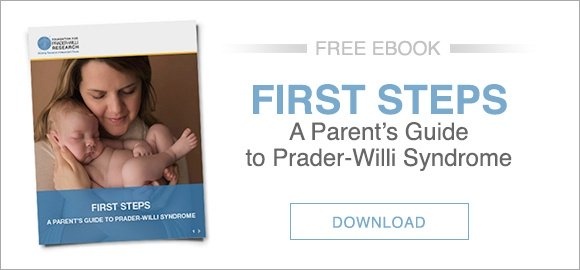 We're thrilled to announce our first round of PWS research grants for 2017! Seven outstanding projects were selected for funding, totaling $795,221 in support. These projects address a variety of topics important in PWS, including behavior, genetics, and measuring hyperphagia.
We're thrilled to announce our first round of PWS research grants for 2017! Seven outstanding projects were selected for funding, totaling $795,221 in support. These projects address a variety of topics important in PWS, including behavior, genetics, and measuring hyperphagia.
"We're excited to be supporting strong and diverse research, including several clinical projects," said Theresa Strong, FPWR Director of Research Programs. "This work will continue to advance our understanding of PWS, and lead to new treatments."
"We're proud to once again be able to support such a well rounded group of investigators," said FPWR Executive Director Susan Hedstrom. "FPWR is focused on funding research that will lead to treatments for PWS. The FPWR grant program to date has been fundamental to our efforts and we greatly appreciate the dedication of our supporters around the world who make this program possible."
Details on these projects will be shared in an upcoming webinar. Be sure to subscribe to our newsletter for up-to-date notifications of this and other upcoming events.
2017 PWS Research Grants
- Evaluating Factors That May Affect the Efficacy of Intranasal Oxytocin Treatment in PWS. Daniel Driscoll, MD, PhD, University of Florida ($130,639). To date, clinical trials with intranasal oxytocin treatment in PWS have yielded inconsistent, and in some instances, contradictory results on PWS specific behaviors, appetite and socialization. It's not yet clear why some individuals respond positively to OT therapy and some don't, and determining genetic or biological features that influence oxytocin responsiveness is critical to advancing this therapy in the PWS population. Dr. Driscoll's group will examine genetic and biological differences that may differentiate 'responders' from 'nonresponders' to OT therapy. The results from this study may guide personalized treatment with intranasal oxytocin for individuals with PWS in the future.
- Proof of Concept Study of Vagus Nerve Stimulation From An External Device In PWS (Year 2). Tony Holland, MRCP, University of Cambridge ($71,585). This is year 2 of a clinical trial evaluating whether vagus nerve stimulation (VNS) improves behavior in PWS. The study team made good progress in year 1, recruiting patients, and gathering 6 months of baseline data. In year 2, they will ‘turn on’ VNS and measure how it impacts behavior.
- Transcranial Direct Current Stimulation, Startle Modulation and Event-related Potentials of the Brain (year 2). Merlin Butler, PhD, University of Kansas Medical Center ($106,177). Year 2 of transcranial direct current stimulation- a noninvasive, mild stimulation electrical stimulation- will determine whether this intervention has an impact on hyperphagia. This study will also evaluate endpoints for PWS clinical trials.
- Role of the Endocannabinoid System in PWS-Induced Osteoporosis and Skeletal Growth. Yossi Tam, DMD, PhD, Hebrew University of Jerusalem ($108,000). This group will examine whether pharmacological targeting of CB1R improves osteoporosis in PWS. This preclinical work, using the Magel2 PWS mouse model, will define the underlying basis of osteoporosis and evaluate whether a new drug, previously shown to reduce weight in PWS mice, will also increase bone density.
- Prevalence and Aetiology of PWS Low Level Mosaicism In UPD Undetected By Standard Testing. David Godler, PhD, Murdoch Children’s Research Institute ($107,942). This team has found that some individuals with PWS by UPD actually have some cells with that have three chromosome 15s (trisomy 15). Here they will examine this in a larger group of patients, and look at how the clinical characteristics and severity of PWS symptoms might be influenced by this phenomenon.
- Developing Objective Biomarkers of Hyperphagia In Children With PWS. Alexandra Key, PhD, Vanderbilt University ($95,278). This proof of concept study will determine whether ‘eye tracking’ and brain-based ‘event related potential’ measures will be useful as clinical trial endpoints. These approaches might objectively and quantitatively measure a participant’s interest and focus on food.
- A Post-Mortem Study of von Economo Neurons In the Frontal Cortex of Brains of Persons With PWS (YEAR 2). Patrick Hof, MD, Icahn School of Medicine at Mount Sinai. ($100,000). This project is examining a specialized kind of neuron that is important in social interaction, to determine whether these neurons they are altered in the brains of individuals with PWS. In year 2, additional studies on new samples will be undertaken, with accompanying protein analysis.
- Gene Expression Analysis in PWS Subject Derived Dental Pulp Stem Cell Neurons (Year 2). Lawrence Reiter, PhD, University of Tennessee Health Sciences ($75,600). Reiter’s group will complete the analysis of neurons derived from dental pulp cells, focusing on differences in PWS by UPD vs. deletion, in comparison to 15qdup syndromes, with a focus on the autism phenotype.








